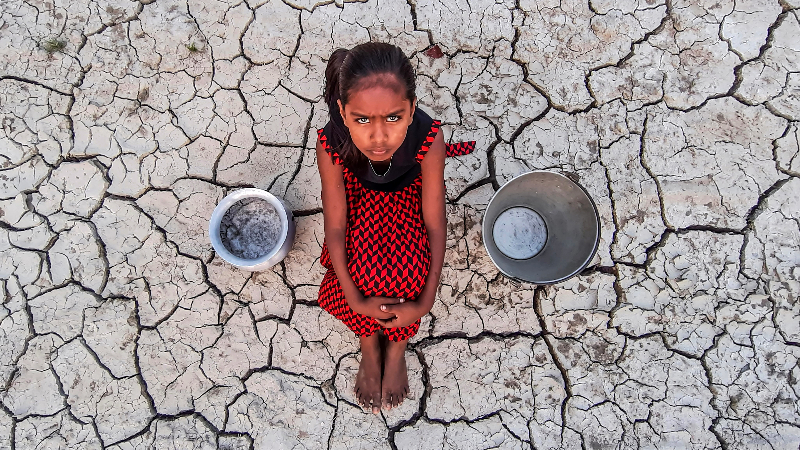 Md Hasanur Rahman Tanzir :: Minister of Environment, Forests and Climate Change, Saber Hossain Chowdhury said the France-Bangladesh Adaptation Agreement will play an important role in addressing the urgent challenges of climate change. This joint venture will accelerate Bangladesh’s adaptation strategy as well as ensure additional funding for climate resilient projects. The environment minister said these things during a bilateral meeting with his ministry on the France-Bangladesh adaptation agreement with a delegation led by France’s ambassador, Marie Masdupou, in the meeting room of the Ministry of Environment, Forests and Climate Change on Sunday.
Md Hasanur Rahman Tanzir :: Minister of Environment, Forests and Climate Change, Saber Hossain Chowdhury said the France-Bangladesh Adaptation Agreement will play an important role in addressing the urgent challenges of climate change. This joint venture will accelerate Bangladesh’s adaptation strategy as well as ensure additional funding for climate resilient projects. The environment minister said these things during a bilateral meeting with his ministry on the France-Bangladesh adaptation agreement with a delegation led by France’s ambassador, Marie Masdupou, in the meeting room of the Ministry of Environment, Forests and Climate Change on Sunday.
The meeting discussed in detail the finalization of the France-Bangladesh adaptation agreement. The Ministry is requested to allocate allocations in line with national priorities. The contract period is set from September 2023 to August 2028. The French delegation expressed its willingness to align the implementation phase with the National Adaptation Plan of Bangladesh. Discussions emphasized the need for a well-targeted capacity building programme. The ministry will submit project ideas under the ‘Ecosystems, Wetlands and Biodiversity’ sector of NAP to receive initial funding.
The French development agency requested the ministry to submit a formal project to secure the first installment of 4 million euros for 2024. The meeting highlighted projects aimed at restoring and protecting the Sundarbans, including mangrove planting and community-based forest fire management. In addition, the French government is providing €300 million in climate policy loan support through the French Development Agency. The Ministry emphasized the need for technical assistance to meet specific indicators, especially those related to enhanced transparency framework. In the meeting, the secretary of the ministry. Farhina Ahmed, Additional Secretary (Development). Mosharraf Hossain, Additional Secretary (Environment). Fahmida Khanam, director general of the Department of Environment. Abdul Hamid, Joint Secretary (Development) Lubna Yasmin and French Development Agency Acting Director Cecilia Cortez were present along with senior officials of the Ministry and the French Embassy.
2024 is the hottest year ever: Bangladesh has been experiencing increasingly hot summers for the past few years. 2024 is set to be the hottest year for Bangladesh, with all districts recording an average temperature of 40 to 42 degrees Celsius. Due to such an unprecedented disaster, the country’s population and biodiversity are under threat. According to news reports, at least a few people have died of heatstroke, and millions have suffered from several health problems including vomiting, diarrhea, heat exhaustion, headaches, pneumonia, respiratory problems, dehydration, etc.
Some educational institutions have been temporarily closed due to extreme heat. This extreme weather is a manifestation of Bangladesh’s environmental degradation and poor environmental governance. Bangladesh is already at the top of the list of countries affected by the effects of global climate change. From indiscriminate felling of trees to encroachment of rivers and canals, human activities are responsible for the present state of the environment.
Various studies have identified different types of environmental crime over the past few years. White-collar criminals have encroached and destroyed thousands of acres of forest land. Noxious gases from their established factories pollute the air. Industrial effluents have polluted the river. Industrial factories have been constructed occupying the banks of the river. There are even allegations of environmental destruction against some government institutions. These incidents prove that there is a serious weakness in protecting the environment in Bangladesh. Environmental governance is a fundamental pillar of holistic governance. It is not only related to water and land management, but it is also intricately related to issues such as public health, agriculture and livelihood, industry and infrastructure, population management, etc. However, environmental governance in Bangladesh is considered to be fragmented, fragmented, outdated and weak in nature. Despite the presence of several ministries dedicated to environmental protection, there are often complaints about their roles and responsibilities. Due to the lack of effective measures, the environment of Bangladesh is becoming such a disaster. An example will make the matter more clear. The National River Protection Commission is tasked with identifying and addressing illegal river-related activities, but does not have the power to take direct legal action against perpetrators. Such a situation has taken human-induced environmental damage to an alarming level in Bangladesh. Environmental management lacks coordination, cooperation and communication. Although there are several ministries, institutions and departments dealing with environmental issues in Bangladesh, there is no effective system of coordination among them. For example, when an incident occurs in a river, it becomes difficult to determine who is responsible for not taking action within the Ministry of Environment, Forests and Climate Change. According to Climate Impact Tracker Asia, daytime temperatures have risen by about 2.74 degrees Celsius over the past 20 years. In addition, summers tend to be longer and winters shorter in length.
Md. Kamruzzaman Milan, a climatologist and senior scientific officer at the Bangladesh Rice Research Institute considers the current heat wave to be the result of human activities against the environment. A study conducted by him has shown that heat waves in South Asia are linked to global climate change. Bangladesh’s overall contribution to global climate change is less than that of developed countries, but it suffers the most damage. It is not possible for Bangladesh alone to eliminate this problem. The government should be more proactive to reduce the heatwave. The government should take a stronger stand against human activities that destroy the environment. Actions taking place inside Bangladesh that are damaging the environment must be stopped.




